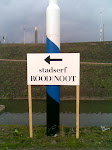Posts tonen met het label leeskabinet. Alle posts tonen
Posts tonen met het label leeskabinet. Alle posts tonen
dinsdag 20 september 2011
anton chekhov (1860-1904)
Born in the old Black Sea port of Taganrog on January 17 (old calendar) or January 29 (new calendar), 1860. His grandfather had been a serf; his father married a merchant's daughter and settled in Taganrog, where, during Anton's boyhood, he carried on a small and unsuccessful trade in provisions. The young Anton was soon impressed into the services of the large, poverty-stricken family, and he spoke regretfully in after years of his hard-worked childhood. But he was obedient and good-natured, and worked cheerfully in his father's shop, closely observing the idlers that assembled there, and gathering the drollest stories, which he would afterward whisper in class to his laughing schoolfellows. Many were the punishments which he incurred by this habit, which was incorrigible.
anton chekhov (1860-1904)
THE most important dramatist which Russia has so far produced is Anton Chekhov (1860-1904), a physician of Moscow who left, besides many fine short stories, a few dramas which are strikingly original. Chekhov combined a naturalistic method with a philosophic mind and a humanitarian gentleness of temper. At least four of his plays -- The Sea Gull, The Cherry Orchard, Uncle Vanya, and The Three Sisters -- have become widely known throughout the world, particularly through the interpretation of the Moscow Art Theater players. The Cherry Orchard is perhaps most typical both of the author's method and of his success in creating "atmosphere." The surviving members of an ancient land-holding family come back from Paris to find that their country place is about to be sold at auction for debts. A family frient and former peasant, now a prosperous merchant, suggests that they cut down the cherry orchard and built little cottages which they can rent out and thus pay off their debt; but family pride and a general spirit of procrastination will not permit them to consent to such a solution. In their natures, sorrow over trouble and levity over responsibilities are inextricably mixed. They can take nothing seriously. They argue and talk it all over in their own charming fashion until finally the house is sold over their heads and the sound of the axe is heard in the beloved orchard. When they leave, with characteristic absent-mindedness they accidentally lock the faithful old servant, Firs, in the empty and abandoned house. That is all: there is no struggle, nothing that could technically be called a plot; yet on the stage the representation is full of suspense and pathos. The author's conception is intense, though detached. There is no hint of social "problems" or blame for anybody or any party -- only a tender, acute delineation of weak, delightful people. Among the naturalists of the theater, Chekhov and Synge alone have been able to achieve the classic tragic note. Their scenes rise out of human experiences, wherein love and tenderness and family relationships have had their due meed. Especially with Chekhov does one feel the presence of an understanding heart; nothing escapes his observation, yet all is rendered with sympathy and pity.
maandag 12 september 2011
over de kersentuin van discordia, 't barre land en de roovers
Dwars tegen de huidige tijdsgeest van bezuinigingen en cultureel-maatschappelijke verschraling in, komen Maatschappij Discordia en ’t Barre Land tot een prachtige en duurzame samenwerking: de Belgisch-Nederlandse Repertoirevereniging de Vere. De repertoirevereniging zal aankomende jaren iedere maand een stuk spelen uit het rijke repertoire die de gezelschappen in het verleden speelden. De voorstellingen worden gespeeld met hier en daar aangepaste cast, maar het concept blijft gelijk aan de eerdere opvoering. Per voorstelling zullen mogelijk andere samenwerkingen worden aangegaan met Nederlandse en Vlaamse theatermakers en gezelschappen. De Vere zal de komende jaren 33 voorstellingen produceren. De eerste voorstelling in deze reeks is Anton Tsjechovs ‘De Kersentuin’, die sinds 1996 wordt opgevoerd door Maatschappij Discordia.
donderdag 8 september 2011
simon van den berg over de kersentuin (tsjechov)
Simon van den Berg schreef voor de TM van maart een verslag van de eerste voorstellingen van De kersentuin in de nieuwe Veere-bezetting.
Een vrijdag in december. Het westen van Nederland is krakend en bibberend tot stilstand gekomen. Bevriezingen, gladheid en sneeuw leiden tot een verkeersinfarct en in Groningen dicussieert een groep toneelspelers verhit over de komende avond. Ze zitten bij elkaar in de huiskamer van een eenvoudig, maar artistiek ingericht hostel. Twee van hen, Jorn Heijdenrijk van Discordia en Czeslaw de Wijs van ’t Barre Land, hebben gekookt, pasta met uitgebreide salades.
Onderwerp van discussie is: afgelasten of niet. Eén van de spelers van de voorstelling van vanavond is er nog niet. Sara de Bosschere moet uit Antwerpen komen, maar zit in een taxi vast tussen Rotterdam en Utrecht, inmiddels al zo’n drie uur. Lege batterijen bemoeilijken het telefoonverkeer. Als ze in Utrecht een trein kan nemen, is ze dan nog op tijd om te spelen? Wagen ze het daarop? Moeten ze misschien een uur later op? Kun je wel direct vanuit de trein zo het toneel op? Of kunnen ze misschien een andere voorstelling uit de kast trekken? Of moeten ze annuleren en de toeschouwers die gereserveerd hebben gaan bellen?
zondag 28 augustus 2011
het leeskabinet

Het Leeskabinet is een afgeleide van de Leesclub: het is een initiatief van Peter Kolpa (HKU /stadserf Rood|Noot), Liesbeth Groot Nibbelink (Universiteit Utrecht) & Czeslaw de Wijs ('t Barre Land). Er zullen eens in de maand stukken gelezen worden die worden of onlangs zijn gespeeld. De bijeenkomsten zullen afwisselend plaatsvinden in De Snijzaal ('t Barre land) en stadserf Rood|Noot (Peter Kolpa).
woensdag 29 juni 2011
nieuw - vanaf 14 september 2011
Abonneren op:
Posts (Atom)


.jpg)

